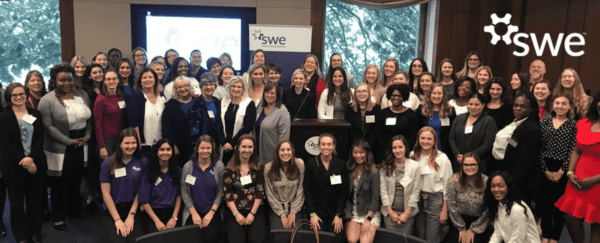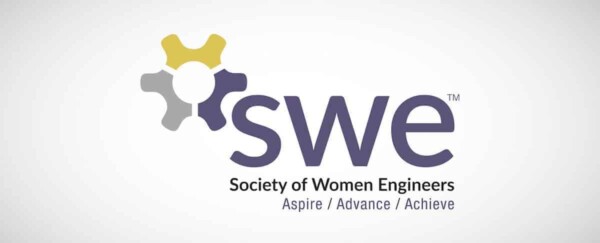Years of transition in politics are known as the first legislative session during which newly elected (or re-elected) officials began to govern. Upon taking office, there is often a period of transition before elected officials propose and consider new pieces of legislation; this period of transition is especially pronounced during years when there is a change of power in the executive branch.
Why Advocate During Years of Transition
SWE’s Congressional Outreach Days in March of 2017 took place during one such year in transition. While SWE and its partners did not advocate around specific pieces of legislation, their presence in Washington, D.C. contributed to the long-term efforts of establishing and building relationships with elected officials.
Specifically, through SWE’s Congressional Outreach Days, the following objectives were achieved:
- SWE members and partners met and established relationships with over 75 elected officials.
- SWE members and partners learned about the legislative priorities around STEM of their elected officials.
- In addition to providing information about SWE and recent research on women in STEM, SWE members and partners shared compelling personal narratives around the importance of gender equity in STEM for women and girls at all stages of their careers.
It is important for all SWE members to be aware of any legislation that impacts STEM education, implementation of Title IX in STEM, budgets for federally funded STEM research and policy around affirmative action and equal opportunity employment. It is equally vital to have already established a relationship with elected officials, both at the state and federal level, in order to successfully advocate around issues that impact women and girls in STEM.
Having a relationship with your elected officials and an understanding of public policy is the first step to any advocacy effort.
How to Advocate During Years of Transition
To support your advocacy efforts, consider bookmarking SWE’s Legislative Action Center. In the coming months, SWE will communicate legislation alerts as bills, measures and orders are introduced that are of concern to SWE’s membership.
Consider taking these steps to begin your advocacy efforts during this period of transition:
- Find your elected official(s) and keep their information in a place you can remember.
- Make an appointment to meet your elected official. While this may seem intimidating, it is important to remember that your elected officials work for you and should be informed about the issues that are important to you. Consider bringing a fellow SWE member or two with you. Remember, this can be done when they are home in their district throughout the year.
- Call, email, or write to your elected official and ask about their priorities around women and girls in STEM. If you do not live close to a district office, it may be hard to meet with your elected official in person. Regardless, you should know what their opinion is on these issues. In addition, it is good to know where they stand on issues to keep them accountable to the promises they’ve made. Plus, it is also easier to call or write and advocate around a position once you’ve had practice.
- Never underestimate the power of personal narrative. Your elected officials often have countless resources that provide data and statistics to support any side of an argument. While providing updated research is always great, never underestimate the power of your own personal narrative and story. There is tremendous value in your ability to share why it is important to you as a constituent that women and girls have equal access to STEM education or are treated fairly in the workplace.
- Consider referring to the 2017 SWE Public Policy Talking Points. To support its members and partners in their advocacy efforts, SWE put together the attached talking points that can be shared with any elected official regardless of their partisanship.
Author
-
![On the Importance of Advocacy During a Year of Political Transition [] SWE Blog](https://alltogether.swe.org/wp-content/uploads/2021/10/swe-favicon.png)
SWE Blog provides up-to-date information and news about the Society and how our members are making a difference every day. You’ll find stories about SWE members, engineering, technology, and other STEM-related topics.






